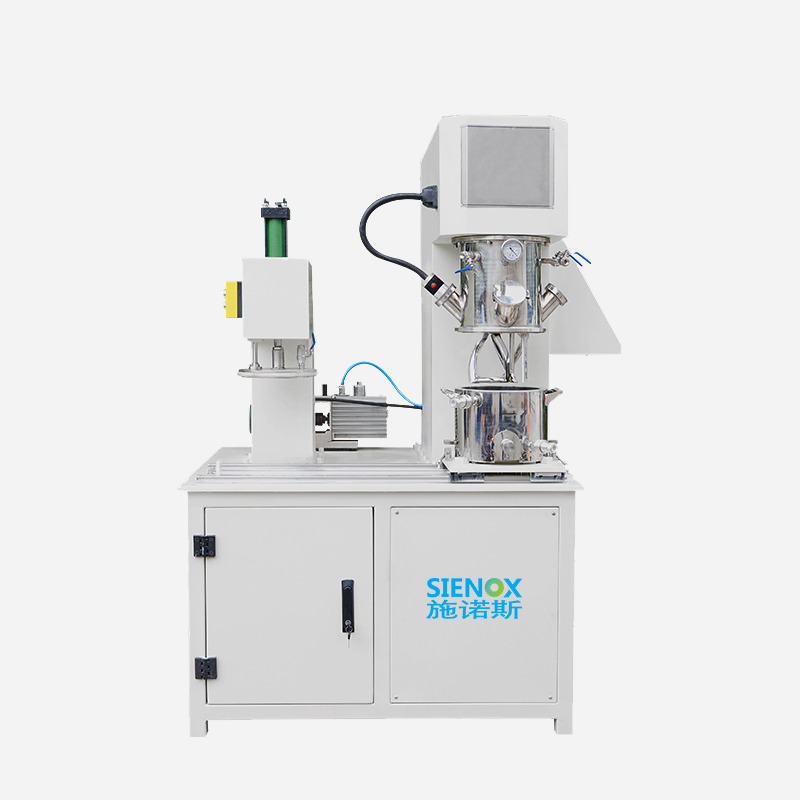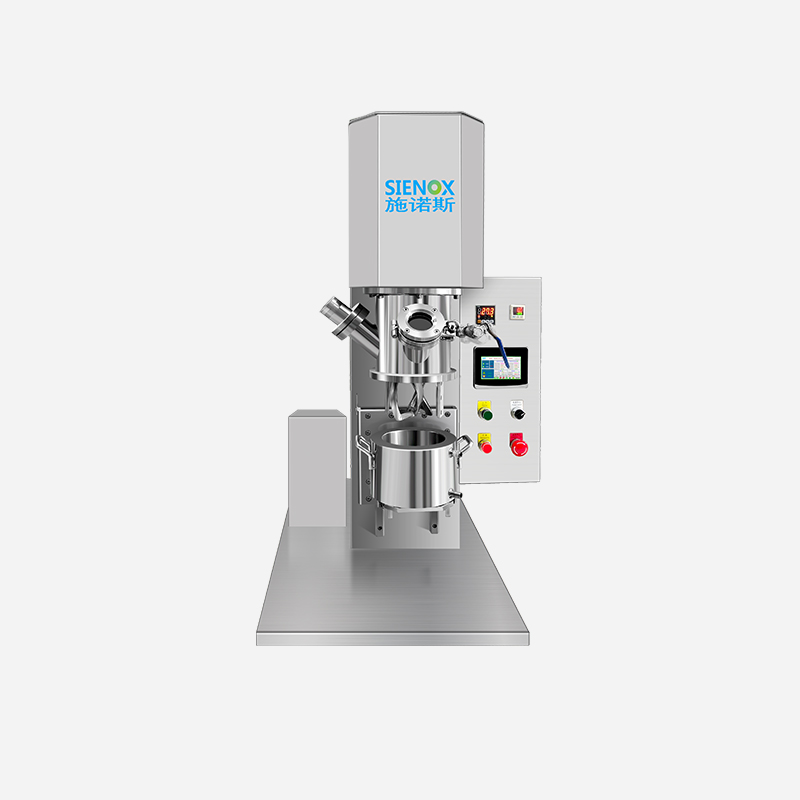
Battery Slurry Mixer

TEL:18925129293
Lithium battery slurry vacuum defoamer SIE-ME050 laboratory high-speed stirring and dispersing machine
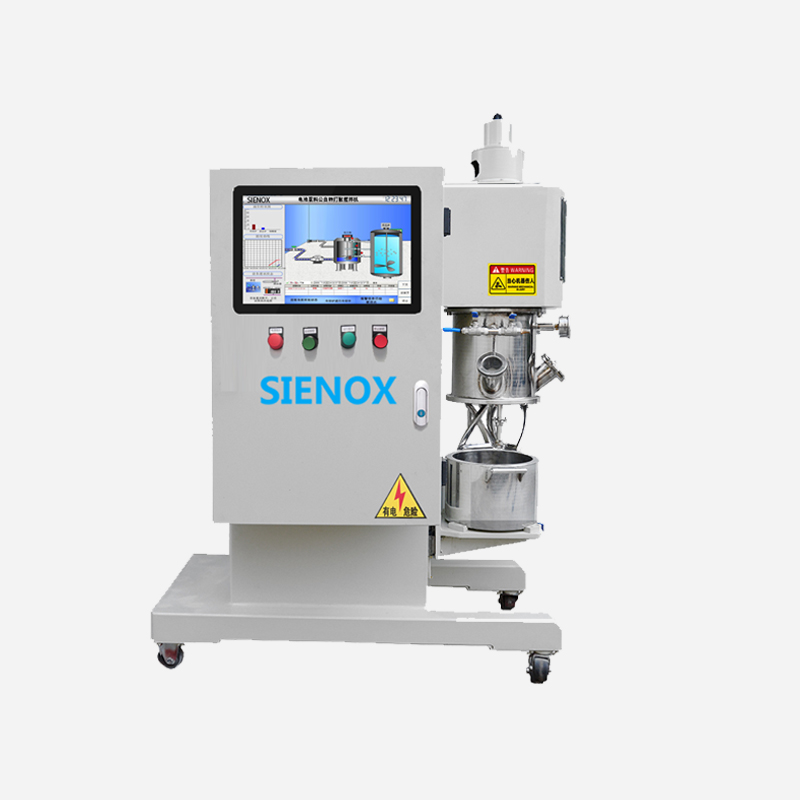
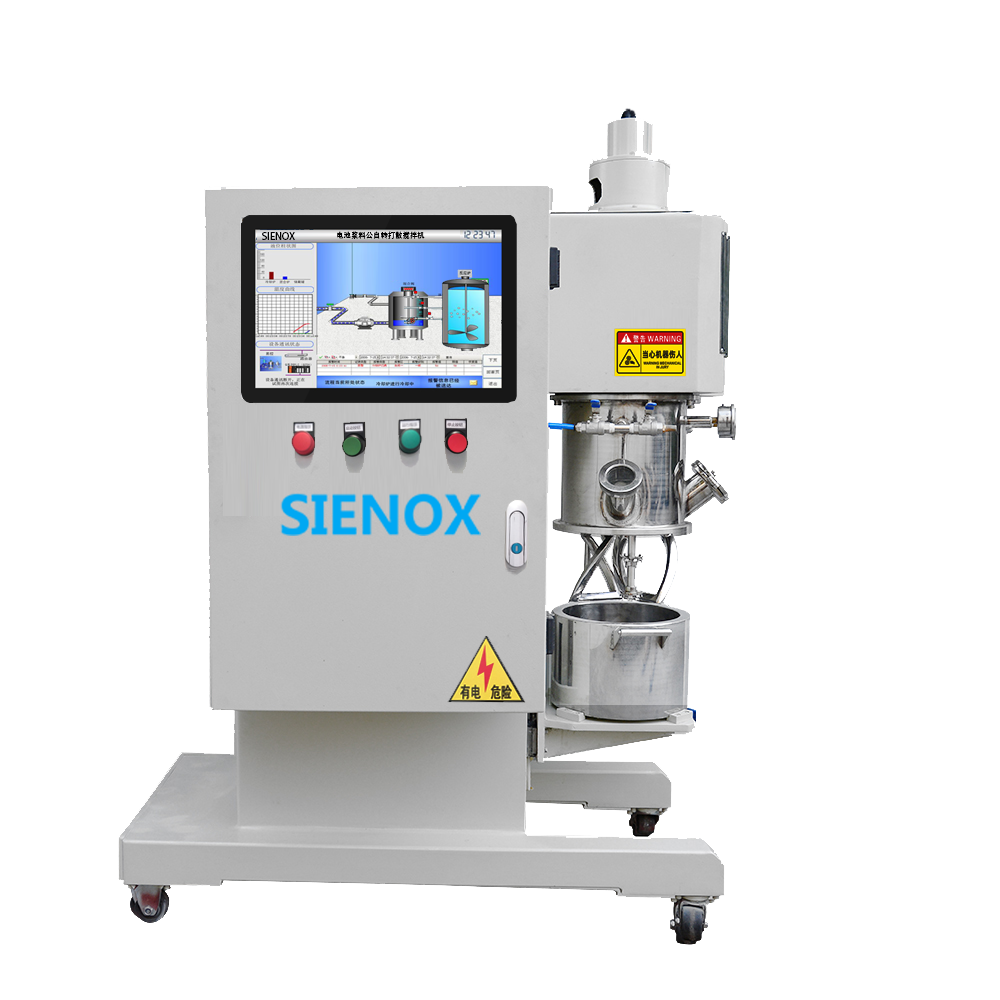
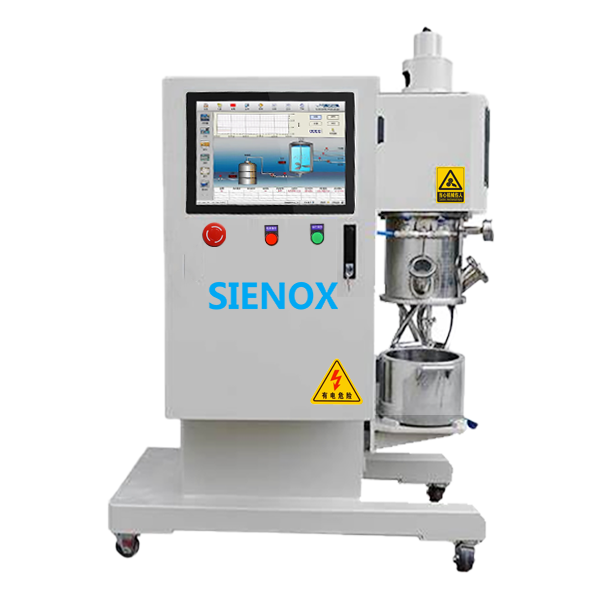
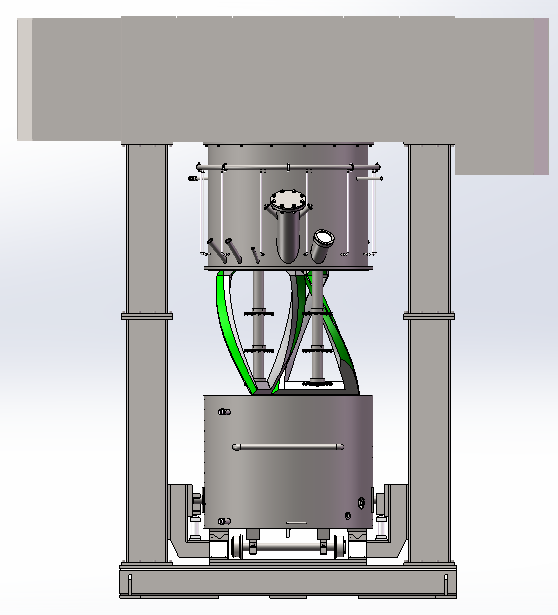




Vacuum mixer technology is used in the mixing process of lithium-ion battery positive and negative electrode slurry preparation, achieving mutual dispersion and full decomposition of battery slurry to achieve uniform mixing and distribution, thereby obtaining battery slurry that meets the process requirements.
Model:SIE-ME050
1. The latest design eliminates various undesirable structures of old equipment, optimizing the design for greater stability.
2. The stirring paddle features a patented design, cast in one piece, finely carved and polished with CNC technology without damaging the original structure.
3. Suitable for dry processing, it shortens mixing time. The planetary gearbox adopts an overall vacuum-sealed design, and the stirring paddle and shaft are made of special steel to ensure no deformation.
4. All electrical components use imported brands, and the motor, mechanical seals, and bearings are all brand-name.
5. Comprehensive safety protection is provided, including an emergency stop switch to prevent mishandling.
6. Remote monitoring: Real-time monitoring of equipment operating status and slurry status.
The vacuum mixer technology is used in the slurry preparation process of lithium-ion battery cathode and anode materials. It ensures the mutual dispersion and full decomposition of battery slurry, achieving uniform mixing and distribution to meet process requirements.
When the mixing process is exposed to air, the slurry can become contaminated and bubbles can form within it. This can cause incomplete coverage of the electrode material during the coating process, affecting the performance and safety of the finished battery. The vacuum mixer is a new type of mixing equipment that combines high vacuum and high-speed shear dispersion, ensuring strict quality of the slurry. During the mixing process, the slurry is easily contaminated by impurities and does not easily disperse evenly. Continuous movement can also cause the slurry to heat up, affecting its performance. To maintain the characteristics of the slurry during mixing, the vacuum mixer parts that come into contact with the slurry undergo pure copper and iron treatment. The barrel wall uses cooling water circulation technology, and the high-shear disperser breaks through traditional mixing techniques for fine dispersion of raw materials. With the increasing demand in the lithium battery market, there is a need for vacuum mixers with larger effective volumes and more stable operation. Sienox meets this challenge by optimizing the equipment structure design and upgrading the equipment comprehensively on a safe and reliable basis. The common volume for vacuum mixers is 20 liters, with a 1500-liter model available for higher production needs, solving capacity concerns for enterprises.
The battery slurry mixers produced by Sienox can be compatible with common MES software or custom-developed MES software for customers.
An MES (Manufacturing Execution System) is a system for collecting and integrating various production information from the factory floor, providing a comprehensive solution for the collection, integration, and analysis of manufacturing information. MES has been industrialized in developed countries, with applications spanning discrete and process manufacturing industries and fields, such as semiconductors, electronics, machinery, automotive, medical, food, brewing, petroleum, chemical, and metallurgy, bringing significant economic benefits to enterprises.
The MES management system provided by Sienox is applied to lithium battery production lines. It connects enterprise managers, supply chain management systems (SCM), and on-site operations/production equipment, providing real-time and accurate sources of actual production data. This system integrates various data from different units on the factory floor (such as materials, production management, manufacturing, quality control, warehouse management, etc.), enabling each unit to quickly obtain the necessary information for operations. This improves production efficiency, product quality, and customer satisfaction.
This equipment is available in multiple versions:
- The 10L and 20L versions are commonly used in research and development laboratories.
- The 200L version is suitable for small-scale production.
- The 1500L version is available for mass production.
- Customized versions tailored to the specific needs of your enterprise can also be provided.
MES (Manufacturing Execution System)
With the expansion of production lines and the development of processes, battery factories will have higher demands on the products of battery production equipment companies. However, the lithium battery production process is complex and involves many steps. Managing the work of a single process cannot control the production status of the entire production line. In the past, equipment manufacturers only provided single-function equipment to realize the battery production process, which can no longer meet the development needs of the lithium battery industry. The MES (Manufacturing Execution System) will provide managers with a comprehensive, reliable, and accurate information management platform.
The real-time information management system for lithium-ion battery production equipment monitors the entire production process from order placement to product completion by transmitting information. It guides, initiates, responds, and reports on factory activities based on timely and accurate data. By quickly responding to changing conditions and reducing non-value-added activities, it improves factory production efficiency and product quality. This real-time information system bridges the gap between the enterprise planning level and the production workshop process control level, serving as a link for integrating manufacturing process information.






